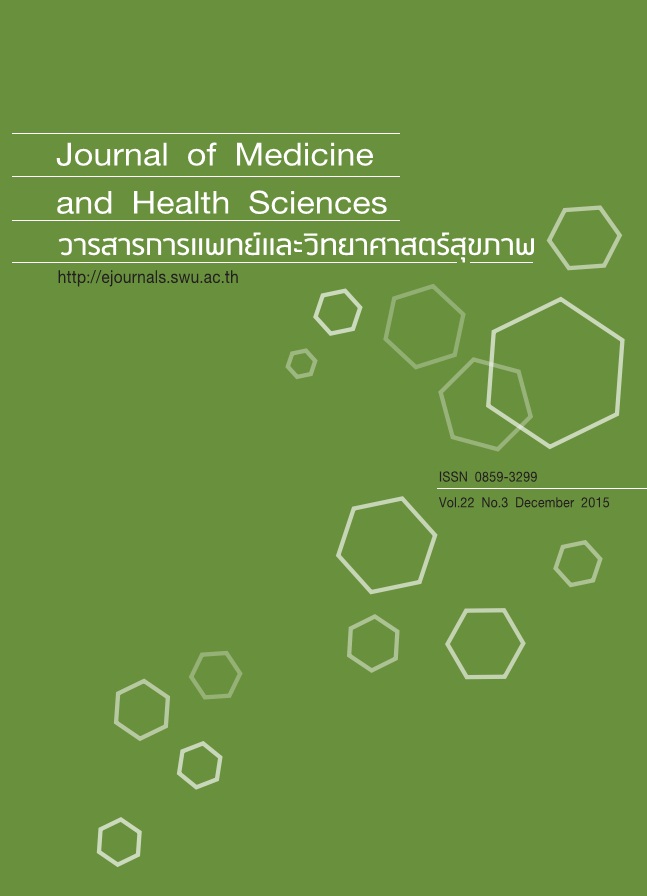Oral health care promotion program in pregnant women by application of the health belief model and the encouragement from their husbands to prevent gingivitis
Keywords:
a program for the promotion of oral health, pregnant women, gingivitis, behavioral modification for the prevention of gingivitisAbstract
This research is a quasi – experimental study which aimed to explore the effects of oral health care promotion program in pregnant women by employing the health belief model and the encouragement from their husbands on behavioral modification for the prevention of gingivitis. The sample comprised of 64 pregnant women at gestational age 8 to 18 weeks recruited at the ante natal care center, HRH Princess Maha Chakri Sirindhorn medical center in Nakhon Nayok Province. Subjects were divided into experimental (n=32) and control (n=32) groups. The experimental group participated in an oral health promotion program including. This consisted of activities such as lecturing with slides, videos and a brochure, group discussions and demonstrations of hygiene practice. In addition, the participants received support from their husbands based on our guide book and the results were monitored by telephone visits. The duration of implementation was 8 weeks. Data were collected by questionnaires. Descriptive statistics, such as percentage, frequency, mean and standard deviation, were analyzed. Comparative analysis was performed using the paired sample t-test and independent sample t-test. The significant level was set at 0.05. The results showed that the experimental group had mean scores of knowledge of gingivitis, perceived susceptibility, perceived benefits, practices for gingivitis prevention and their husbands encouragement significantly higher than those before the program and also higher than those in the control group (p-value < 0.05). Mean scores of perceived severity were significantly higher after following the program and were also higher than that of the control group (p-value < 0.001). Perception of barriers to gingivitis prevention were significantly lower after following the program and were also lower than that of the control group(p-value < 0.001). Therefore, it is suggested that the program should be utilized widely in health care settings. It is also suggested that the participation and supporting of their husbands may increase the effectiveness and compliance of the program.Downloads
Published
2015-11-23
Issue
Section
Original Article


